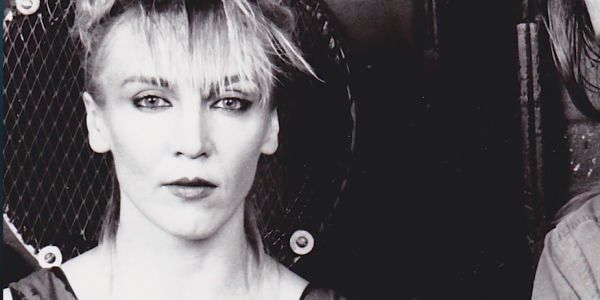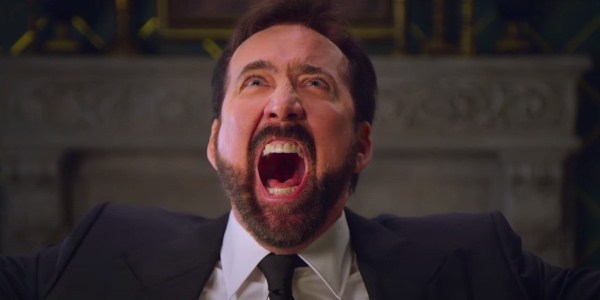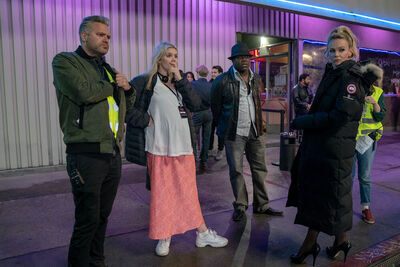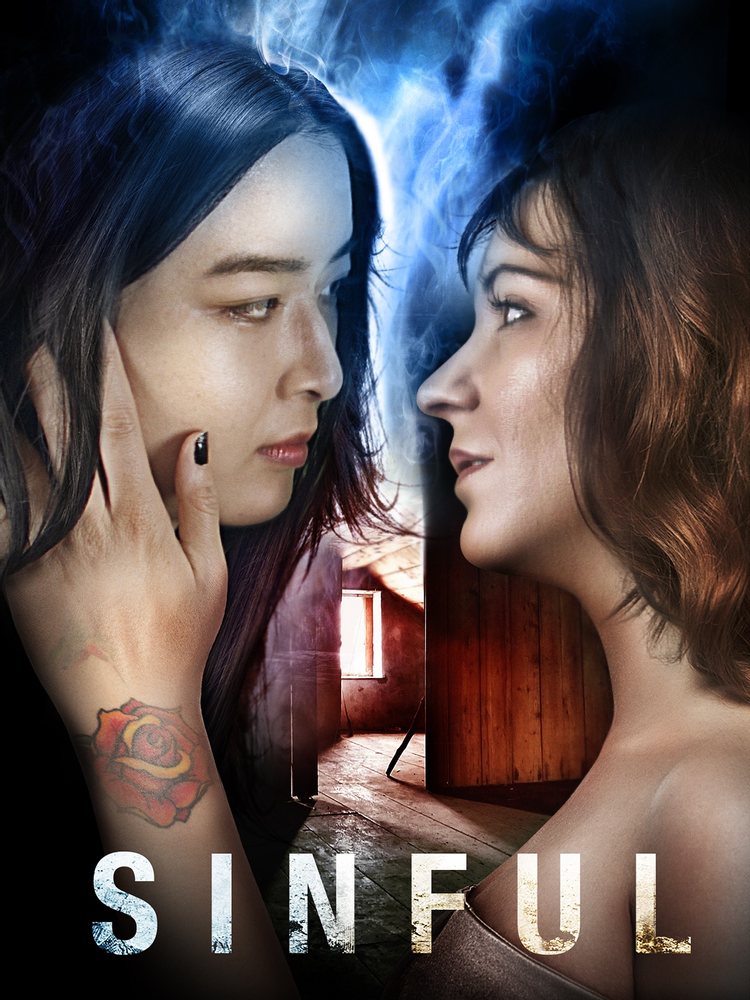London Film Festival 2020: Herself
CW: domestic violence, abuse
There is a shot in Phyllida Lloyd’s exceptional Herself, during a wince-inducing scene of domestic violence, that reminded me of something out of a horror movie. Our heroine Sandra lies on the floor, hair over her face, arm outstretched, as she tries to get away from her abuser. It is an image that the film keeps returning to. The fear, the horror of it punctuates a film that is warm, joyful and contains an unwavering sense of hope, reminding us of what is at stake here, and of the incident that informs Sandra’s mindset throughout.
The Problem
Sandra, played by the film’s co-writer Clare Dunne, is a mother to two lively, funny daughters (Molly McCann and Ruby Rose O’Hara); which is how we meet her, dancing and playing with her girls. Before long, however, we are introduced to abusive partner Gary (Ian Lloyd Anderson), and the horrific reality Sandra faces every day. The aforementioned attack that comes is tough viewing, but well-handled by Lloyd and her team.
Having fled Gary and their home, Sandra is left on a seemingly endless waiting list for government housing, forced to live out of one hotel room with her children. Delights they may be, but Sandra’s daughters are young and need plenty of attention. The mother’s attempts to juggle this attention with work down at the local pub and caring and cleaning for an injured doctor (Harriet Walter) are exhausting to watch, let alone live.
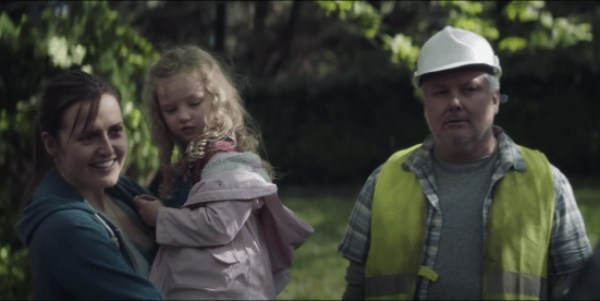
The first act of the film is an excellent introduction to the difficulty of Sandra’s situation, and the exasperation she feels on a daily basis, whilst always living with the memory of Gary’s abuse. Dunne excels in the lead role, bringing a perfect mix of fear and stoicism. What’s more, the character feels lived in, complete. Dunne does not give a film-length performance but creates a character that existed before we met her, and will live on long after we leave the cinema.
The Solution
With a house of her own lightyears away and money tighter than ever, Sandra hits upon an idea to seize control of her own destiny. After stumbling across a rather extreme ‘life hack’ on YouTube, Sandra makes the perhaps ill-advised decision to build her own house. Except she doesn’t have any land to build it on or money to buy said land.
In steps the injured doctor, who offers Sandra the bottom of her garden and a loan of the construction money to help make the dream a reality. Walter, one of Britain’s great acting Dames, brings more than a warm, kindly nature to the role, investing her instead with low-level anger and resentment at how this young woman has been treated. Conleth Hill’s grumpy but benevolent builder and a host of volunteers also join to bring a life-affirming warmth into the film.
The plan does not go unhindered, of course, and it is in this mixture of hope and hardship that the film really soars. Throughout, Lloyd’s film is a tough yet rewarding experience: never too bleak, but with enough heft to really sink in. Moments of near-ecstasy are punctuated with jolting flashbacks and the constant threat Gary poses.
As Sandra tries to slot in the building of a house alongside her existing work and childcare, their co-parenting arrangement becomes increasingly fraught, culminating in an unbearably tense courtroom scene. It is an electrifying standout in a film full of dramatic peaks, and a scene that only works thanks to the consistent quality of the film as a whole.
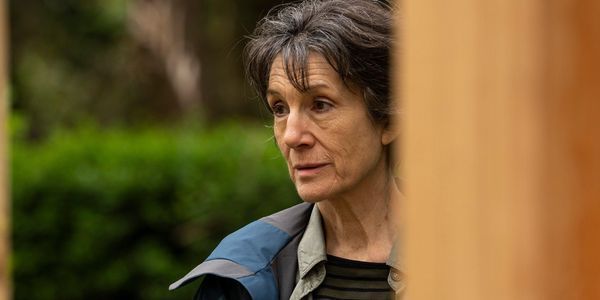
There is nothing flashy, stage, or even particularly noteworthy about the way Lloyd frames the legal showdown; instead, it relies on our pre-existing investment in its participants. Dunne’s magnificent performance up to this point, and the emotional pull of her and Malcolm Campbell’s script, allow a fairly straightforward set-piece to then really fly.
Conclusion: The Scope
A small-scale, intimate story of strength and friendship it may be, but Herself has a thematic reach well beyond its plot. As a comment both on a housing crisis and the suffocating, inescapable impact of domestic abuse, it has profound, international resonance. Particularly astute is the depth given to the abuse shown on screen, where manipulation and gaslighting are portrayed in clear, effective terms.
That said, Dunne has been quick to say that her character should not be viewed as a victim. Indeed, the film is at pains to show the strength and power of Sandra and those around her, quietly making her abuser into the weak, belittled party. One scene, right at the film’s close, hits upon the resilience and unity of its women, and may well move you to tears.
Herself is a heart-rending portrait of a woman taking control of her future. What other films show characters putting matters into their own hands when the system fails them? Let us know in the comments!
Watch Herself
Does content like this matter to you?
Become a Member and support film journalism. Unlock access to all of Film Inquiry`s great articles. Join a community of like-minded readers who are passionate about cinema – get access to our private members Network, give back to independent filmmakers, and more.
Join now!
